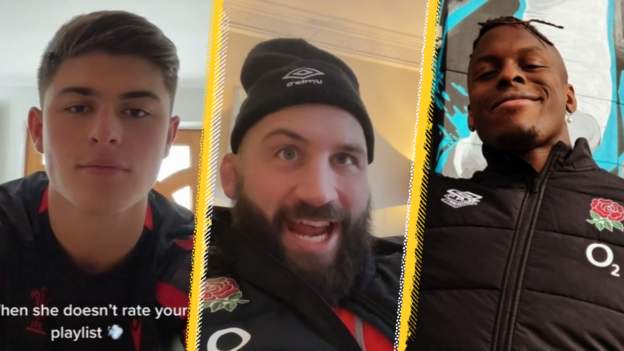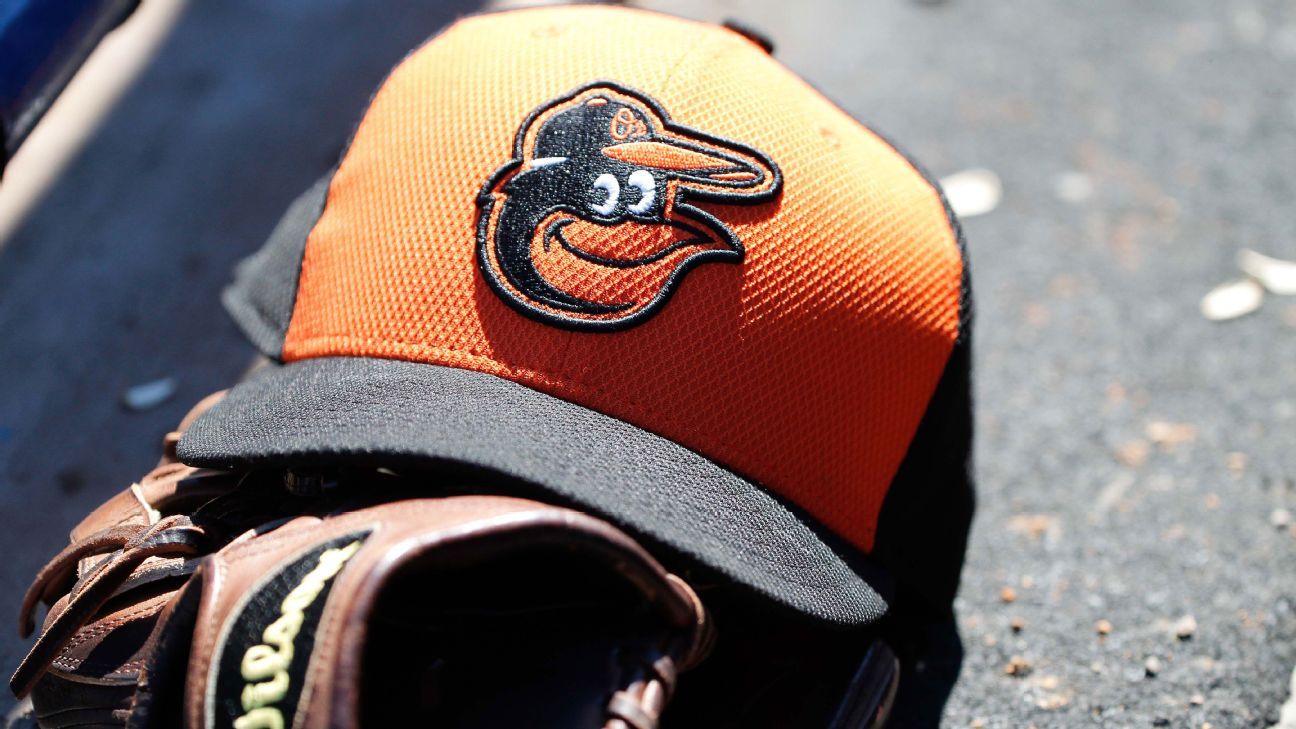
Joe Marler looks straight down the camera. Well, sort of straight. His eyes are crossed.
It might not mean anything to the majority of fans following England in the Six Nations. But that's the idea. An important idea.
Because, since he filmed it in the days after the defeat by Scotland last month, Marler's impression of a viral Tenerife street salesman has been watched 1.4m times on TikTok.
"I think it is a nice, fun way to engage a different audience," said Marler.
TikTok clearly agrees. The youngest social media giant announced a deal to sponsor the Six Nations earlier this year. A key part is title rights to the Women's Six Nations, which begins later this month.
Initially, the pair seemed an unlikely match. The Six Nations' partners have tended to be blue-chip companies with a slightly greyer clientele - luxury watches, business consultants, stout and the like.
However, Rich Waterworth, TikTok's general manager for UK and Europe, says it makes sense.
"It is a great demographic fit," he told BBC Sport. "The chance to be title sponsors to the women's tournament was really important to us.
"TikTok is very focused on being representative of diverse communities and we were keen to support the incredible growth in women's rugby.
"It really is about different generations coming together, working with creators on content that appeals to a broad range of users."
For the Six Nations, that wide appeal is key.
While older fans keep seats full and tills ringing, the future is less secure.
Recreational participation in down at many clubs, concussion concerns are up and young audiences, spoilt for choice and short on time, are hard to attract.
If rugby can get it right though, the prize is lucrative.
"In the media landscape now, 18-35 year olds are the golden goose for advertisers," explains Michael Skey, senior lecturer in communication and media at Loughborough University.
"By and large they don't have any interest in sticking to TV listings, but sport is one of the few things that brings them together in a large audience.
"Rugby can struggle, in that it can be a complicated game. A platform like TikTok, based on short video clips, reduces it down to the big collisions and pieces of athleticism that are compelling and draw in new fans."
The Six Nations now has the expertise, money and motivation to look long term. CVC Partners - a private equity group - took a 14% stake in the tournament in return for a £365m investment last year.
The tournament's stars will be part of the strategy.
Wales' quicksilver wing Louis Rees-Zammit has nearly 60,000 followers tracking him on TikTok. England second row Maro Itoje's activism reaches parts other players can't. France scrum-half Antoine Dupont's Midas touch extends to making photoshoots in yellow dressing gowns look good.
Sometimes though it isn't about big names, big money and big brands. Sometimes it is about stepping back and letting youth lead the way.
Robbie Owen posted his first video on YouTube in January 2018, picking apart the tactics of the Ospreys.
"I described the Ospreys' gameplan as being like the Spiderman game for Gameboy Advance while other teams were like the Playstation version of the game," he told BBC Sport.
"Those were my reference points, rather than the things I had seen on television.
"Virtually all rugby coverage I had seen my entire life was aimed at middle-aged men who drive Land Rovers."
Owen, now 26, hoped his channel - Squidge Rugby - would reach 5,000 subscribers by the 2019 Rugby World.
In fact, it boomed way beyond those ambitions. His mix of keen analysis and sharp wit had 100,000 subscribers by the start of the tournament. Now more than 185,000 have signed up. Most of them young.
"The two biggest age categories in the breakdown are always 13-18 and 18-30," Owen added. "Under 30s are by far the biggest demographic who are watching this stuff, and that is exciting as it is probably not the case with most rugby content."
Owen's successful slice and dicing of Six Nations action soon came to the attention of the tournament's organiser. Initially though they saw copyright infringement, rather than commercial opportunity.
"Back in August 2019, I had a run-in with the Six Nations, who threatened to have a bunch of videos taken down," says Owen.
"I think it was so new, nobody had any idea what it was.
"Over the course of a week or so though I had a series of conversations and it seemed each time I was speaking to someone higher and higher up the organisation. Ultimately I think we came to the conclusion that it is a symbiotic relationship.
"I like to think that my stuff points people to the Six Nations. I hope so because I genuinely love it. It is the highlight of my year every year."
As ever, Marler gets to the point.
"If you want to attract a new audience, a big part of that is youngsters," he said of his recent social media capers.
The Six Nations too is bending the norms to bring in that vital new crowd.















 Phone: (800) 737. 6040
Phone: (800) 737. 6040 Fax: (800) 825 5558
Fax: (800) 825 5558 Website:
Website:  Email:
Email: 






